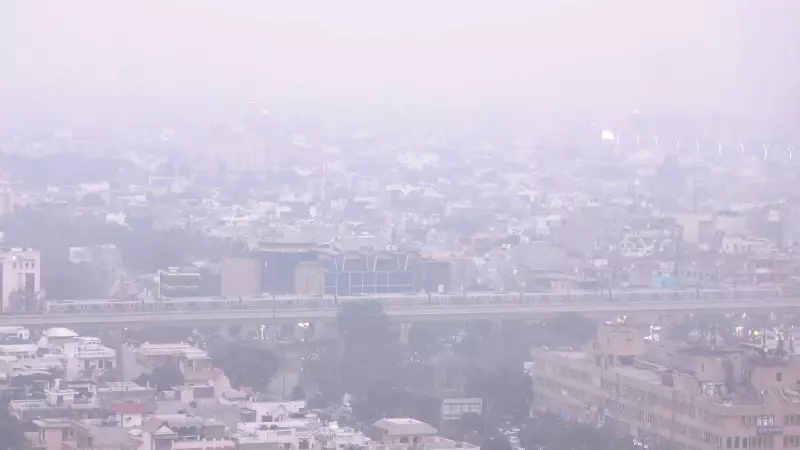
Delhi-NCR Continues to Gasp for Breath as Air Quality Plummets
The residents of Delhi and the National Capital Region woke up to another day of hazardous air on Saturday, November 22, 2025. A thick, toxic blanket of smog enveloped the region, making it difficult to breathe and significantly reducing visibility. The air quality index (AQI) registered a severe reading of 447 at 7 AM, pushing the city deeper into a public health crisis.
Alarming Pollution Levels and Health Equivalency
The data from the air quality tracker aqi.in painted a grim picture. The concentration of deadly particulate matter reached shocking levels. The PM 2.5 level surged to 312 μg/m³, while the PM 10 level was recorded at 422 μg/m³. To put this into a stark health perspective, breathing this air is equivalent to smoking nearly 11 cigarettes in a single day. These numbers are astronomically higher than the safe limits prescribed by the World Health Organization (WHO), which recommends that 24-hour PM 2.5 exposure should not exceed 15 μg/m³ and PM 10 should be limited to 45 μg/m³.
NCR Cities Drowning in Toxic Air
The pollution nightmare was not confined to Delhi alone. The entire National Capital Region was struggling under the weight of toxic air. The situation in neighboring cities was, in fact, even worse. Greater Noida recorded a terrifying AQI of 495, firmly in the 'severe' category. It was closely followed by Noida at 462, Gurgaon at 454, and Faridabad at 448. Meerut also reported a dangerously high AQI of 443. The Early Warning System for Delhi reported that visibility had dropped significantly, ranging between just 800 to 900 meters on Friday morning, disrupting daily life and transportation.
Official Response and Critical Health Advisory
In response to the escalating crisis, the Commission for Air Quality Management (CAQM) has enforced the Graded Response Action Plan Stage-III (GRAP-3). This stage is triggered when the AQI is in, or is predicted to enter, the 'severe' range of 401-450. Health experts have issued urgent advisories, warning that the pollution poses a greater threat to children who spend more time outdoors. Common symptoms being reported include watery eyes, asthmatic symptoms, and itchy skin.
The advisory strongly recommends that citizens:
- Avoid stepping outdoors as much as possible.
- If going out is unavoidable, wear a protective N-95 mask.
- Completely avoid outdoor exercises like jogging, running, and yoga.
- Use air purifiers at home and in cars.
- Seek immediate medical attention for any respiratory distress, persistent coughing, or chest tightness.
As a precaution, schools in Delhi have already suspended all outdoor activities for students. The city continues to wait for a reprieve from the relentless smog, with authorities and residents alike searching for a long-term solution to this annual environmental disaster.





